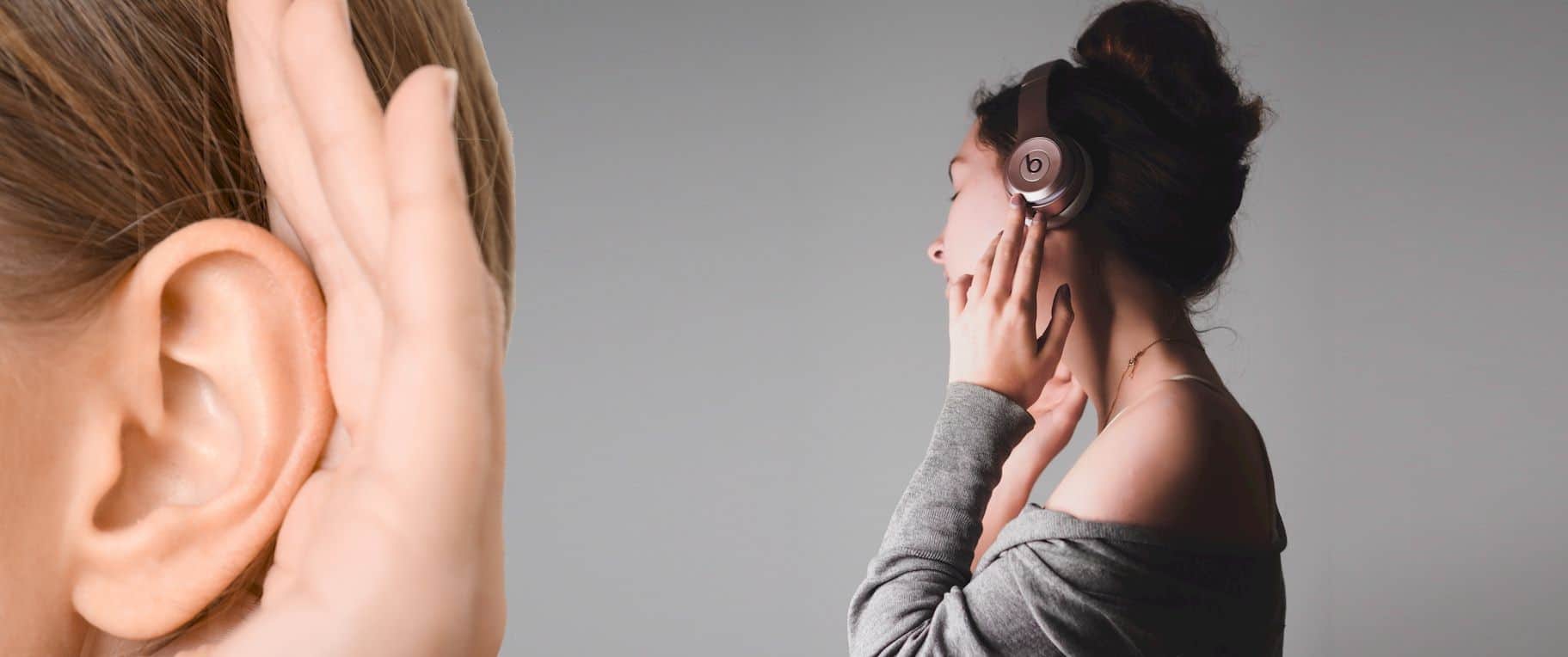No one in the world would like to have a constant sound ringing in their years. That’s what tinnitus is. Now, many people think wearing noise-canceling headphones will help them with that. While some think it makes things worse.
Here, we will unveil the underlying factors and see which one is the actual case. You will get to know the drama of noise-canceling headphones tinnitus. Let’s get going then.
Contents
What is Noise Cancelling Headphones?
In reality, there are two ways to go about noise-canceling headphones. Almost all over-ear and in-ear headphones can block a little bit of noise. But in this era of advanced technology, you can't call them noise-canceling headphones.
What we know as true noise-canceling headphones are the ones that cancel the noises you are supposed to get. The way a noise-canceling headphone works is as follows:
- First of all, your headphone detects the noise that is surrounding you. Then it determines the wavelength of the noise.
- Next up, it creates an anti-noise wave that has the opposite wavelength of the actual noise wave.
- When these two noises collide, the result is null. This means the anti-noise eliminates the noise, and you are left with zero noise.
This is the basic working way of noise-canceling headphones. It’s known as active noise cancellation, which is the true noise cancellation feature. Some quality headphones can eliminate the noise, and the lower-end headphones eliminate some of it.
Related: headphones feedback noise
What is tinnitus?
Tinnitus is a hearing disease where you hear noises without any actual outside source of the noise. This happens mostly due to the damage of hairs inside your ear. There are many reasons for this to occur.
A common reason for tinnitus is exposure to loud noise very often. Even listening to high-volume music all the time with headphones can cause this problem. You will get to hear ringing noises in your ear if you are suffering from it.
This disease can be temporary or permanent; there is no fixed rule on that. It depends on the damage and the healing process.
Noise-canceling headphones cause tinnitus? or make tinnitus worse?
To make things clear, any headphones can be a cause of tinnitus. If you hear music with a high volume, you will most likely suffer from tinnitus once in your lifetime. However, the impact may be greater with noise-canceling headphones.
With noise-canceling headphones and high volume, the music will directly hit your ears. This will have a clearer impact which eventually affects negatively. However, all of this is only true for a higher volume.
If you are using noise-canceling headphones at a moderate volume, then things can get better for you. It's not a remedy but a distraction.
Using noise-canceling headphones can isolate you from all the different noises and focus on the audio. With a focus on the audio, you won't have to focus on the noises you usually get from tinnitus.
So, in short, noise-canceling headphones can help you distract from tinnitus. It neither makes things worse nor better. It's just a temporary solution when you want a distraction from tinnitus and focuses on something.
Related: Audio Sounds Echoey Cancellation
The Tips to Use Noise Cancelling Headphones for Tinnitus
Like you saw above, just using noise-canceling headphones won't help you in any way. There are certain things you can do with your headphones that may help you with your condition. Here are some tips for working on for better results:
- Always keep the volume to a moderate level. Too much volume in the music will surely make things worse for your tinnitus. It’s best to keep the volume below 60%.
- Try listening to calming and relaxing music that doesn’t come with ring or ping noises. Music with a mid-frequency works best as they don't have a sudden impact on your ears.
- Don't wear your headphones all the time. Only wear your headphones when the problem is getting out of hand. You can also wear them when you need distraction and focus on something.
- Never wear your headphones and go to sleep. Don’t use your headphones as a sleeping mechanism. It may seem effective, but it truly isn’t worth it.
- Get good quality active noise-canceling headphones that can eliminate most noises and give you a calming ambiance.
- You can also try out some sound therapy that is widely available online.
Just keeping up with these tips will help you a lot just with your noise-canceling headphones.
Related: Headphones Crackling
The Top Types of Headphones for Tinnitus
If you are struggling to choose a noise-canceling headphone specifically for tinnitus, here are some options you can check out:
- Nuheara IQbuds² MAX: This one is a great choice that serves a lot of purposes for tinnitus. This one has an active noise cancellation feature to help you have an isolated environment. Along with that, it's an earbud so that you can get a great benefit from the compact and portable nature of this.
- Bose Noise Cancelling Headphones 700: If you want more control over noise cancellation, you can go with this. It helps you go from complete noise cancellation to complete transparency. The quality is also awe-inspiring.
- Soundcore Life Q30: Well, if you don't want to spend too much money for this purpose, this is a good choice. It's a good quality budget headphone with a noise cancellation feature.
You can look for many other types of headphones that can help you get some relief from tinnitus. Among them, bone conduction headphones are a popular choice among people you can try out.
Last words
All in all, noise-canceling headphones for tinnitus isn't a treatment or a cure. It's just a temporary relief that you can get. If you are in a severe condition of tinnitus, then you should seek medical help before anything else, as it will let you know if it’s permanent or not.
For a temporary solution, noise cancellation headphones aren’t a bad idea. They can distract you from the phantom noises and keep you relaxed and focused for a certain duration. If that’s your need, you can surely go for it.

Graduated with a Bachelor of Audio Engineering and Sound Production. He has worked with a number of studios as a Recording Engineer, with over 10 years of servicing experience in both re-recording mixing and sound editing.

